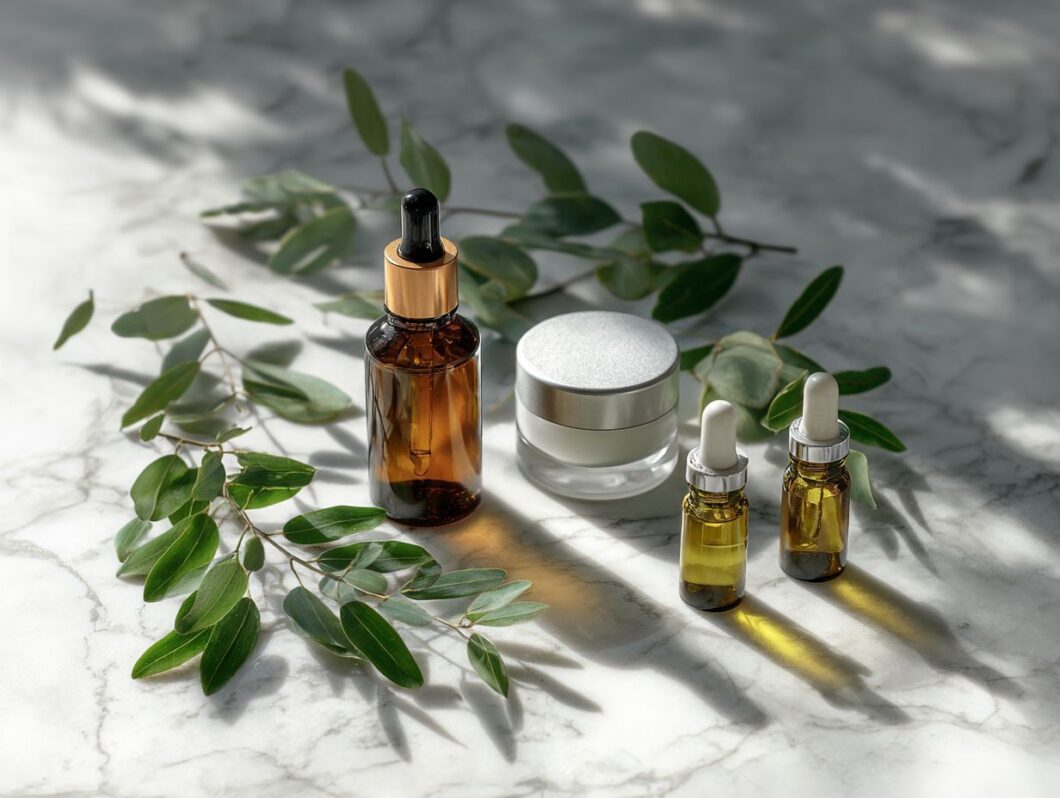Peptides are revolutionizing skincare, yet many remain unaware of their transformative potential. As I delved into the science behind these powerful compounds, I discovered their impressive ability to enhance skin health and combat aging. In this article, I’ll explore what peptides are, the various types you should know, their remarkable benefits, and how to seamlessly integrate them into your skincare routine. Join me as we unveil the secrets to achieving radiant, resilient skin through the wonders of peptides.
Definition and Basic Function
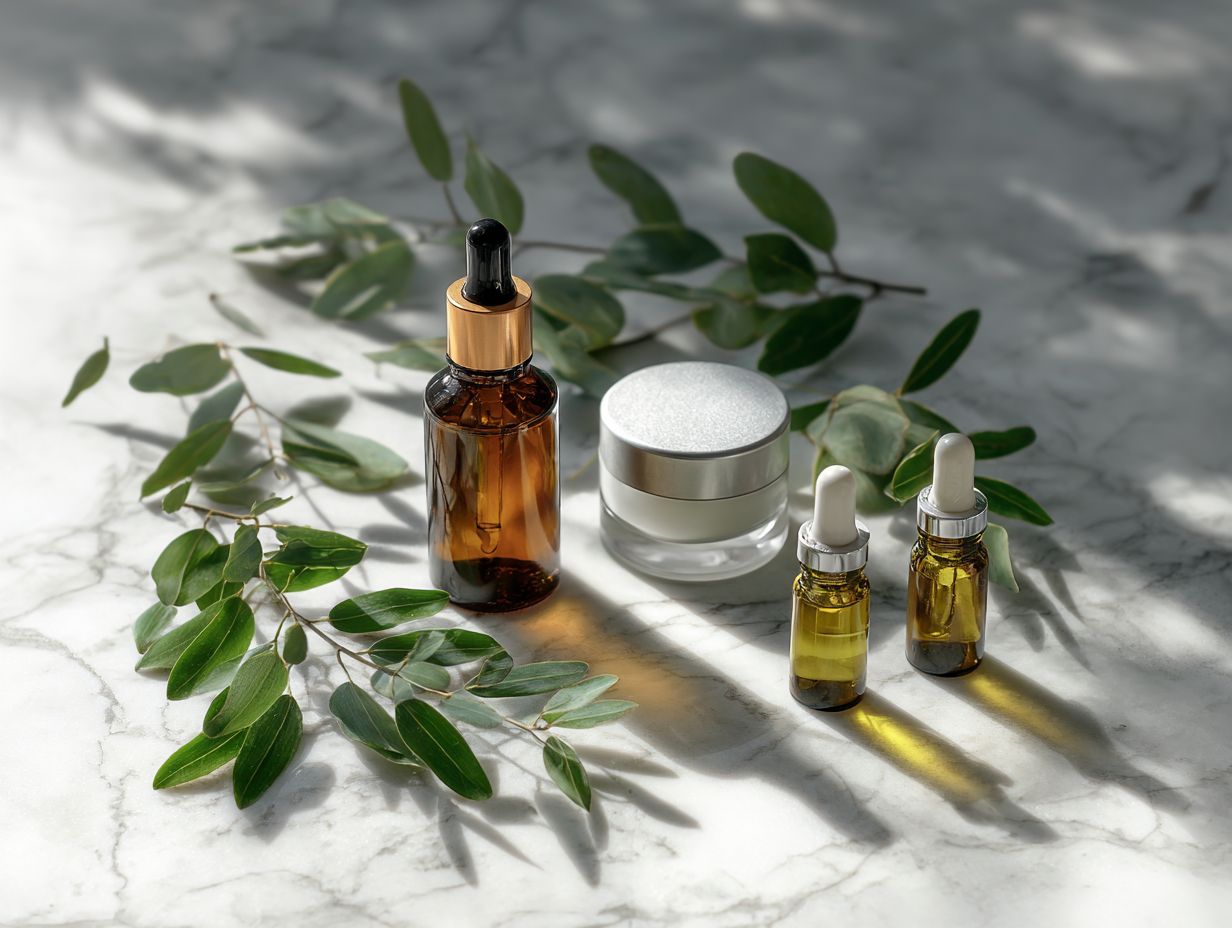
Peptides are defined as sequences of amino acids that play a crucial role in cell signaling, regulating various biological processes such as skin elasticity, skin healing, and cellular communication within the skin.
A prominent example is palmitoyl pentapeptide-4, commonly referred to as Matrixyl. This peptide effectively stimulates collagen production and promotes skin repair. When included in serums, it signals skin cells to enhance their regeneration processes, resulting in improved elasticity and a reduction in fine lines.
Additionally, peptides such as copper peptides are beneficial for wound healing, as they enhance blood circulation, improve skin texture, and facilitate nutrient delivery.
For optimal results, I recommend incorporating peptide-rich formulations into your skincare routine, including:
- Serums with a concentration of 2-10% peptides
- Moisturizers with a concentration of 2-10% peptides
Applying these products both in the morning and evening will maximize their benefits.
History of Peptides in Skincare
The use of peptides in skincare has a history that dates back to the late 20th century, when research into their cellular benefits began to gain traction. In the early 2000s, the launch of Matrixyl marked a significant milestone, showcasing peptides’ capacity to stimulate collagen production.
Over the years, I have seen products featuring peptides like Argireline and Palmitoyl Oligopeptide enter the market, each claiming to offer anti-aging benefits. Today’s formulations often come with extensive scientific backing, demonstrating their enhanced effectiveness in reducing fine lines and improving skin texture.
To fully explore this trend, I recommend seeking out products with proven peptide combinations, which can provide a beneficial blend of hydration and rejuvenation for your skincare routine.
Types of Peptides
I categorize peptides into several types, each serving distinct functions that address various aspects of skin health and beauty.
Signal Peptides
I recognize that signal peptides, particularly copper peptides, are essential for communicating with skin cells to enhance collagen production and promote healing. These peptides are vital in the wound healing process, as they signal an increase in the production of elastin and collagen, both crucial for skin regeneration.
For instance, I often recommend The Ordinary’s “Buffet” serum, which employs multiple peptide technologies, including Matrixyl 3000, to firm the skin and reduce the appearance of wrinkles. Another noteworthy product is Drunk Elephant’s Protini Polypeptide Cream, which combines peptides with amino acids to provide enhanced hydration and support.
Incorporating these products into my skincare routine can effectively stimulate skin repair and address signs of aging.
Carrier Peptides
Carrier peptides, commonly found in various anti-aging serums, play a crucial role in transporting essential minerals to the skin, thereby enhancing its overall health and vitality. These peptides facilitate the absorption of vital nutrients such as copper and zinc, which are essential for collagen production and skin repair.
For instance, I often recommend the “Copper Peptide Serum,” which contains copper tripeptide known for its healing and rejuvenating properties. Another effective option is “The Ordinary’s Buffet,” a product that combines multiple peptides to specifically target fine lines and wrinkles.
Incorporating these products into my daily skincare routine has the potential to significantly improve skin texture and elasticity, making them vital for anyone looking to achieve a youthful appearance.
Enzyme-Inhibitor Peptides
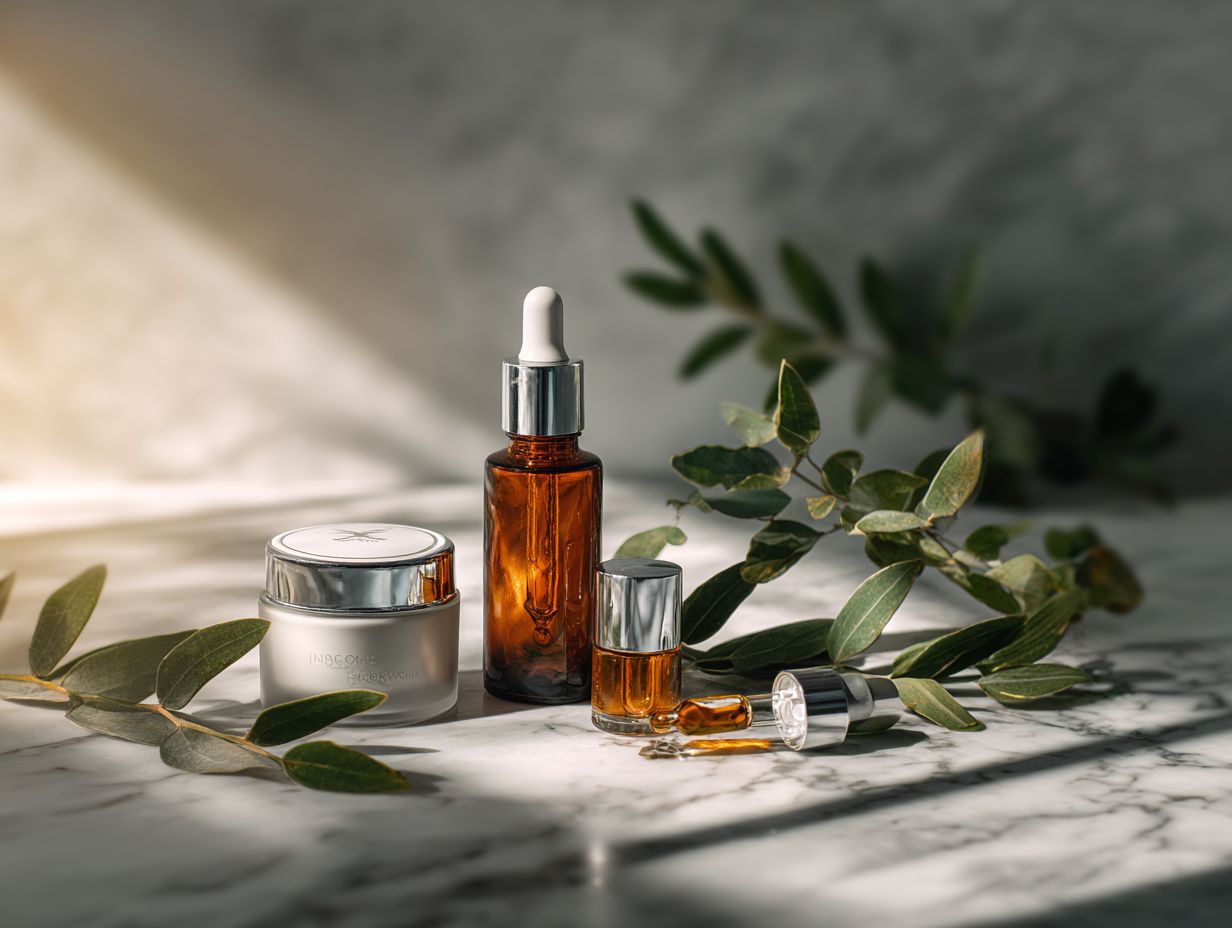
Enzyme-inhibitor peptides function by blocking enzymes that break down collagen, which aids in minimizing wrinkles and enhancing skin elasticity. I often find these peptides incorporated into high-quality skincare products aimed at addressing signs of aging.
For instance, Skinceuticals’ “A.G.E. Eye Complex” utilizes a blend of peptides to reduce dark circles and improve skin texture by supporting collagen synthesis. Another excellent option is Olay’s “Regenerist Micro-Sculpting Cream,” which contains a peptide-rich formula designed to firm the skin and reduce the appearance of fine lines.
To achieve the best results, I recommend applying these products twice daily after cleansing to ensure optimal absorption and effectiveness.
Benefits of Peptides in Skincare
I recognize that peptides provide numerous benefits, including reducing signs of aging and reinforcing the skin barrier.
This makes them a pivotal ingredient in contemporary skincare formulations.
Anti-Aging Properties
The anti-aging properties of peptides are well-documented, particularly their ability to stimulate collagen production and enhance skin texture. For optimal results, I recommend considering peptides like Matrixyl 3000. Studies indicate that consistent use can lead to an increase in collagen production by up to 30%. Many users report noticeable improvements in skin elasticity within just a few weeks.
To effectively incorporate peptides into my skincare routine, I apply a serum containing them twice daily, using gentle upward motions.
I also find that combining peptide products with a daily sunscreen significantly enhances their effectiveness by protecting the newly generated collagen from UV damage, ensuring that my investment in skincare truly pays off.
Skin Barrier Repair
Peptides are fundamental in repairing the skin barrier, which is vital for maintaining hydration, managing inflammation, and protecting against external irritants.
Clinical studies indicate that peptides, such as those found in CeraVe’s peptide-infused creams, significantly enhance skin moisture retention.
For example, a recent study revealed a 30% improvement in hydration levels within just four weeks of use.
These creams contain essential peptides like palmitoyl pentapeptide, which support collagen production and strengthen the skin’s resilience against environmental stressors. By incorporating such products into my skincare routine, I not only aid in repairing the barrier but also promote youthful, plump skin.
Regular use can lead to noticeable improvements in skin texture and overall health.
How to Incorporate Peptides into Your Routine
Incorporating peptides into my skincare routine can significantly enhance both efficacy and results; however, understanding how to choose the right products is essential.
Choosing the Right Products
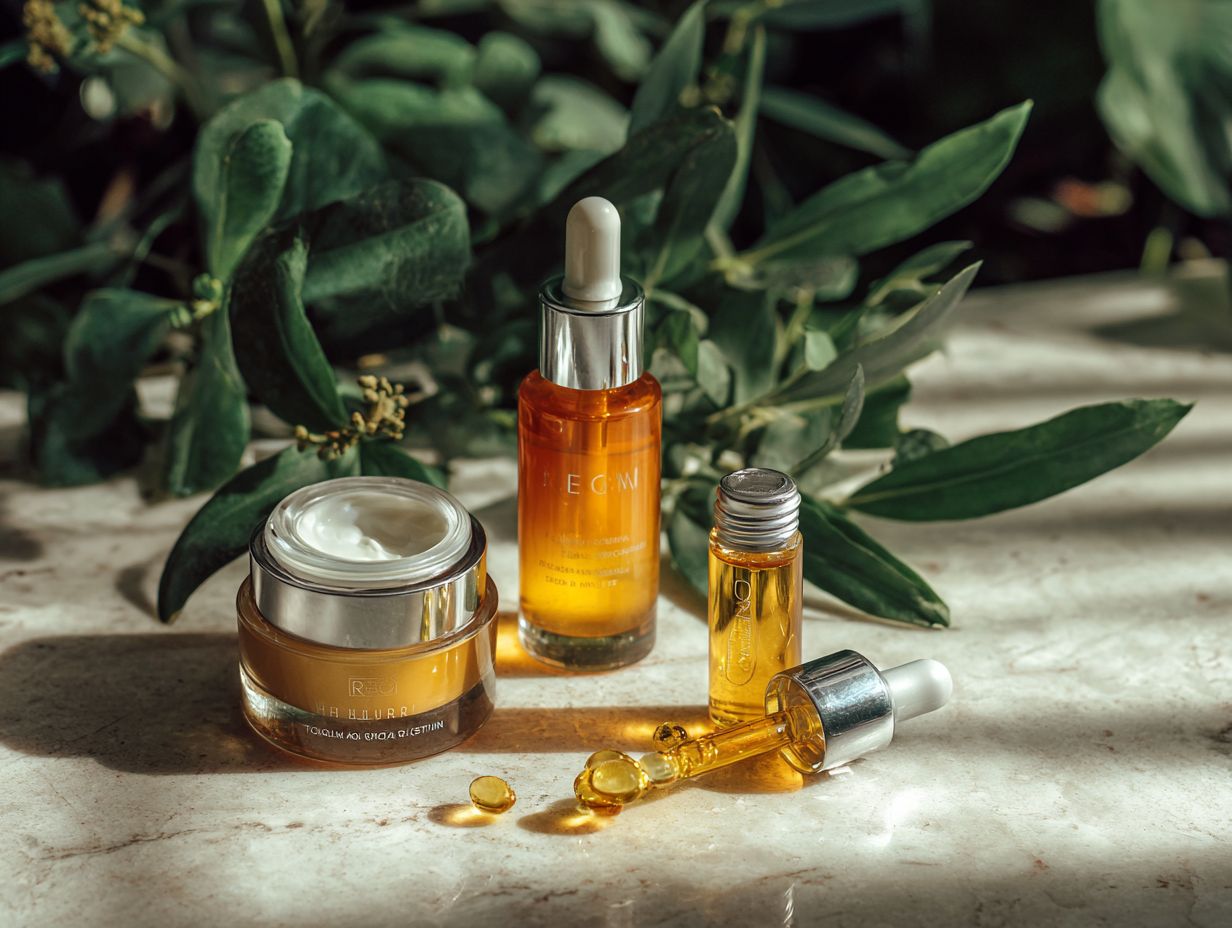
When selecting peptide products, I make sure to look for formulations with a concentration of at least 1% to maximize benefits. I prioritize brands that are recognized for their high-quality ingredients and transparent sourcing.
For example, Drunk Elephant is notable for emphasizing the efficacy and purity of their peptide formulations.
I also check for synergistic blends that enhance absorption and effectiveness, such as those that combine peptides with antioxidants or hydrators. I consider products from The Ordinary, which focus on straightforward formulations, and SkinCeuticals, which are well-regarded for their scientific approach to skincare.
By evaluating these criteria, I ensure that I choose a peptide product that not only meets potency standards but also effectively supports my skin health.
Application Tips
For optimal results, I apply peptides on a clean face, ideally after using toners and before applying thicker creams to enhance absorption. After the application, I find it beneficial to layer on a lightweight moisturizer to lock in hydration.
I prefer morning applications, especially for their brightening and firming effects, while using them in the evening may enhance repair and recovery. For instance, I consider using argireline during the day to minimize fine lines and copper peptides at night for their regenerative properties.
It’s important to remember to patch test new peptides and gradually introduce them into my routine to monitor any skin reactions.
Potential Side Effects and Considerations
While I find that peptides are generally well-tolerated, it is important to recognize the potential side effects that users should consider before incorporating them into their regimen.
Allergic Reactions
I recognize that some individuals may experience allergic reactions to certain peptides, which can lead to irritation or rashes, especially in those with sensitive skin types.
To minimize the risk of such reactions, I always conduct a patch test when trying new products. I apply a small amount to a discreet area, such as the inner forearm, and wait for 24 to 48 hours to monitor for any adverse reactions.
I stay vigilant for symptoms like redness, itching, or swelling. If I notice any of these signs, I discontinue use immediately.
For any persistent issues, I find it crucial to consult a dermatologist. They can recommend alternative products or perform allergy testing to identify specific triggers, ensuring that my skincare routine remains both safe and effective.
Consulting with a Dermatologist for Expert Skincare Tips
Consulting with a dermatologist for skincare ingredients allows me to receive personalized guidance on incorporating peptides benefits and peptide complexes into my skincare routine, particularly if I have specific skin conditions or need dermatological benefits. Dermatologists typically recommend peptide products, including natural peptides and synthetic peptides, that are tailored to individual needs.
For instance, I have found that Matrixyl, known for its anti-aging and bioactive compounds properties, is commonly included in serums and creams such as The Ordinary’s ‘Matrixyl 10% + HA.’
Another noteworthy option is Argireline, a neuropeptide often referred to as ‘Botox in a bottle.’ I have seen it featured in products like Timeless Skincare’s ‘Matrixyl Synthe’6 Serum.’ These peptide complexes formulations effectively target fine lines and enhance skin elasticity.
It is essential for me to discuss with my dermatologist which specific peptide therapy formulations will best suit my skin type and address my concerns, ensuring product efficacy.
Future of Peptides in Skincare
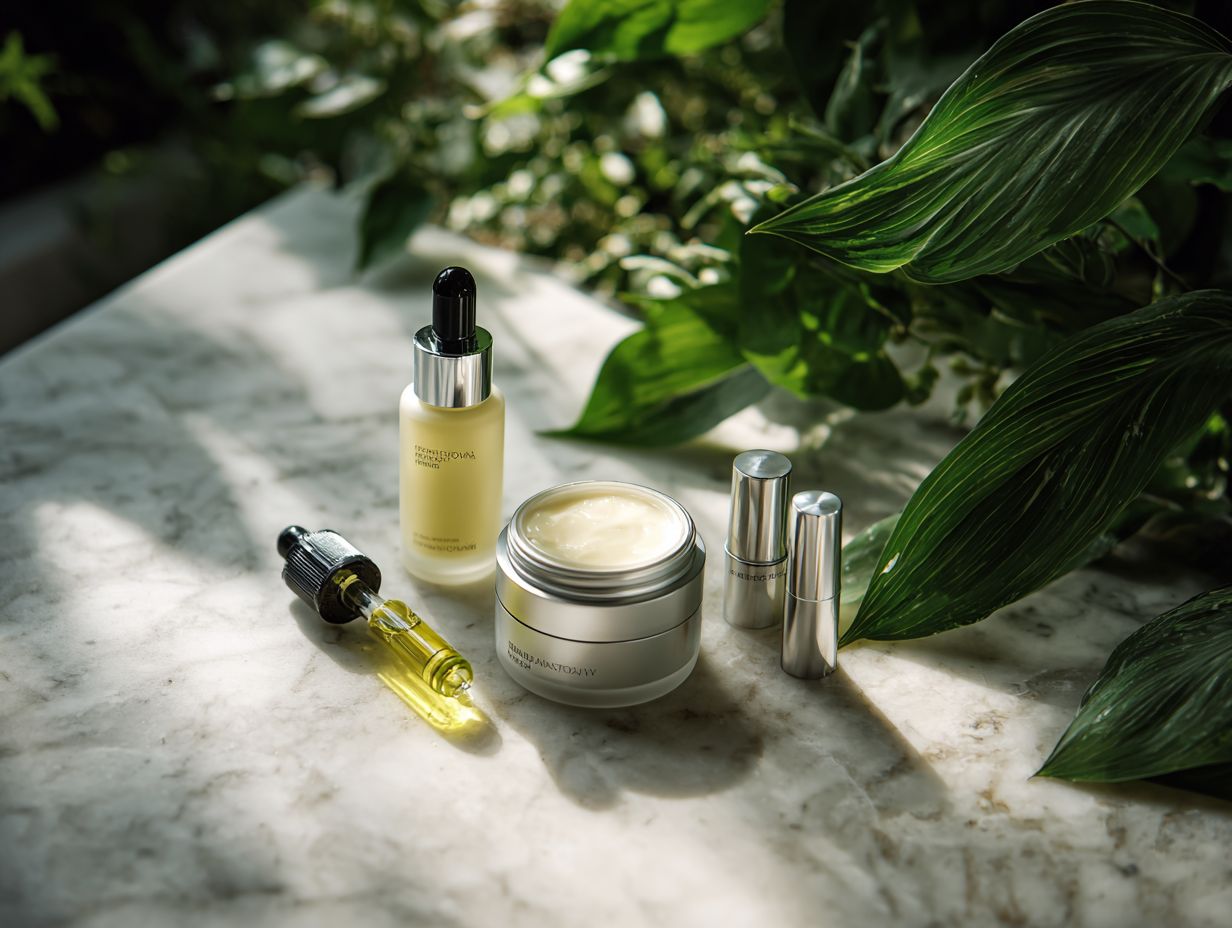
The future of peptides in skincare appears promising, with ongoing peptide research looking into novel peptide sequences and their therapeutic benefits through dermatological studies.
My current focus is on developing innovative peptide formulations designed to enhance skin barrier function, balance moisture loss, and promote cellular regeneration. For instance, studies on hexapeptides in cosmetic science have demonstrated potential in reducing the appearance of fine lines by stimulating collagen production, contributing to skin rejuvenating.
Additionally, projects investigating antimicrobial peptides and their antioxidant properties are anticipated to result in products capable of mitigating acne, enhancing skin tone, and addressing other skin conditions. I expect advanced peptide technology formulations to emerge in 2024, utilizing biotechnological breakthroughs to more effectively target specific skin concerns and improve cosmetic effectiveness.
Frequently Asked Questions
What are topical peptides in the skincare industry?
Peptides are short chains of amino acids that act as building blocks for proteins in the skin. They have multiple functions in skincare, including improving skin texture and tone, increasing collagen production, and reducing signs of aging, contributing to youthfulness.
Why do I need peptides in my skincare routine?
Peptides are essential for maintaining healthy and youthful-looking skin, aiding in skin nourishment and preventing moisture balance disruption. They help to stimulate collagen production, which is vital for maintaining skin’s firmness, elasticity, and smoothness.
How do peptides benefit the skin?
Peptides have numerous benefits for the skin, including improving skin texture and tone, reducing fine lines and wrinkles, promoting skin rejuvenation, and overall skin health. They also have anti-inflammatory and healing properties and can help to repair damaged skin.
Are peptides safe for all skin types?
Yes, peptides are generally safe for all skin types and are well-tolerated by most people, even those with sensitivity. However, it is always recommended to patch test a new product before incorporating it into your regular skincare routine.
Can peptides be used with other skincare ingredients?
Yes, peptides can be used in combination with other skincare ingredients. In fact, they can enhance the effects of other active ingredients in beauty products, such as Vitamin C and retinol, making them a beneficial addition to any skincare routine and beauty routine.
At what age should I start using peptides in my skincare regimen?
It is never too early to start incorporating peptides into your skincare regimen and routine enhancement. While they are most commonly used for anti-aging purposes, they can also help to improve overall skin health and prevent premature signs of skin aging and promote youth-enhancing effects.


